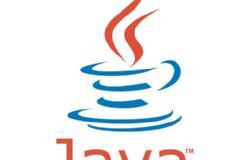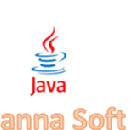Introduction to Programming
JavaFundamentals
Java concepts
Java code
Project
introduce the fundamental components of the Java programming language, including object-oriented programming (OOP) principles and the base language features. The Core Java course is designed to empower students with a robust understanding of Java programming, cultivating essential skills for software development. The primary goal is to equip participants with the knowledge to design and implement Java applications efficiently.
Abstraction, encapsulation, polymorphism, and inheritance are the four main theoretical principles of object-oriented programming. But Java also works with three further OOP concepts: association, aggregation, and composition.
Java encompasses various editions, and Core Java is an integral component within one such edition. Through grasping the core concepts, beginners forge a solid understanding, paving the way for a comprehensive comprehension of the broader Java programming language.
Module 1: Introduction to Java
1.1 Overview of Java Programming Language
- History and Evolution
- Features of Java
- Java Virtual Machine (JVM)
1.2 Setting up Java Development Environment
- Installing Java Development Kit (JDK)
- Configuring Integrated Development Environment (IDE)
Module 2: Java Basics
2.1 Structure of a Java Program
- Main method
- Statements and expressions
2.2 Variables and Data Types
- Primitive data types (int, float, char, boolean)
- Declaring and initializing variables
2.3 Operators and Expressions
- Arithmetic, relational, and logical operators
- Operator precedence
Module 3: Control Flow Statements
3.1 Conditional Statements
- if, else if, else statements
- Switch-case statements
3.2 Looping Statements
- for while, do-while loops
- Enhanced for loop
Module 4: Object-Oriented Programming (OOP) Concepts
4.1 Introduction to OOP
- Objects and Classes
- Inheritance, Polymorphism, Encapsulation, and Abstraction
4.2 Constructors and Destructors
- Default and parameterized constructors
- Garbage collection
Module 5: Exception Handling
5.1 Understanding Exceptions
- Types of exceptions
- Exception hierarchy
5.2 Try-Catch Blocks
- Handling exceptions
- Throwing exceptions
Module 6: File Handling
6.1 Reading and Writing to Files
- File I/O basics
- Working with FileReader and FileWriter
Module 7: Collections Framework
7.1 Overview of Collections
- List, Set, Map
- ArrayList, LinkedList, HashSet, HashMap
7.2 Iterators and Enumerations
- Traversing collections
- Understanding iterators
Module 8: Multithreading
8.1 Introduction to Threads
- Creating and running threads
- Thread synchronization
8.2 Thread Safety and Deadlock
- Avoiding common multithreading pitfalls
Module 9: Introduction to Java API
9.1 Working with Java Standard Libraries
- Utilizing predefined classes and methods
Module 10: Basic Design Patterns
10.1 Understanding Common Design Patterns
- Singleton, Factory, Observer
Module 11: Unit Testing with JUnit
11.1 Introduction to JUnit
- Writing and executing test cases






